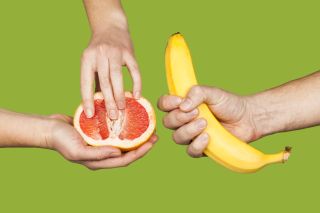Masturbation
Why We Should Be Talking About Masturbation, Not Avoiding It
Personal Perspective: Self-pleasure is a key part of sexual health.
Posted November 14, 2023 Reviewed by Gary Drevitch
Key points
- Frequent masturbation and ejaculation helps reduce the risk of prostate cancer.
- Frequent masturbation increases testosterone and is good for libido.
- Sexual pleasure should be at the center of discussions on sexual health.

The topic of masturbation tends to be at the forefront of people’s minds in May because it is International Masturbation Month and in November because of the popular “No Nut November” challenge.
The May event, though, generally passes quietly and is mostly noticed by sex-positive people who take the opportunity to promote good sexual health information. The discussions in November are quite different. “No Nut November” proponents challenge men not to masturbate or ejaculate for the entire month. On the surface, it might sound like a fun challenge, like eating fried insects or ice water swimming. However, there is a dark side: It is connected with the online forum “NoFap,” which promotes masturbation abstinence and semen retention, not only for November but as a lifestyle.
“NoFap” popularizes a range of misinformation on men’s sexual health and promotes inaccurate pseudo-science on “porn addiction.” According to researcher Nicole Prause, semen retention has its roots in ascetic religious practice. Her own investigation into the origins of “NoFap” found that it first appeared on a body-building forum in 2004, and “NoFap November” seems to have started in 2009.
Since then, “NoFap” has grown exponentially, purporting to be about men’s health and helping men with “porn addiction,” a disorder that has not been clinically recognized. Today, even some therapists, particularly those who claim to treat sex or porn "addiction," recommend “NoFap” to clients. But the movement has no roots in any evidence-based research, nor does it present a clear understanding of human sexual health. As Prause points out, the International Centre for Counter-Terrorism describes “NoFap” sites as engaging in extremist misogyny online. Other research confirms that “NoFap” encourages antisemitism and homophobia, and is linked with increased suicidality among users. Given the high likelihood of harm, it is worrying that any therapists recommend this forum.
Paradoxically, November is also the month traditionally focused on men’s health, through a campaign known as “Movember.” But it is always essential for men to access accurate health information, rather than the manosphere’s pseudo-science. For example, it is useful to understand that frequent masturbation and ejaculation has been shown to help reduce the risk of prostate cancer; it also increases testosterone and is beneficial for libido. Masturbation, sex, and orgasms can be healthy strategies for stress relief, and they can improve sleep as well.
While “NoFap” instills shame of masturbation in men, there is also a long and problematic history of shaming women for engaging in self-pleasure. As psycho-sexologist and sexual health doctor Angela Wright has shared, female masturbation has been “blamed for everything, from rage to being a witch"; it was only declassified as a disorder in the U.S. in 1968, and there are still states where it is illegal to buy a sex toy. Wright reminds us that “the clitoris itself was deliberately written out of anatomy books. In fact, having a prominent clitoris was once thought to be proof of your status as a witch.”
Given this history, it makes sense that the topic of sexual pleasure is largely absent in our discussions of sexual health and sex education, while dysfunctions, sexually-transmitted diseases, unwanted pregnancies, and even dubious pseudo-diagnosis like “sex addiction” or “porn addiction" are prioritized. This is problematic, Wright asserts, because "talking about and focusing on pleasure is also an important part of treating sexual issues like pain, vaginismus, and loss of arousal or climax.” Positioning sexual pleasure at the center of discussions on sexual health and sex education reduces the shame of sex, sexual urges, desires, fantasies and sexual behaviors, and in turn, can equip people with a better awareness of their erotic mind and body so they can make better-informed decisions about their sex lives.
Abstaining from masturbation or biting on a chili every time you have a sexual urge in November may be fun(ish) for a month if you really don’t have anything better to do during cold, rainy evenings, but keep in mind that it has no proven health benefits. Instead, how about taking up the challenge of embracing sexual pleasure? How about we stop calling it a “guilty pleasure,” an indulgence, or a frivolity? Instead, let’s start thinking about pleasure as an important component of our overall health, and keep in mind that masturbation is a key part of it.


